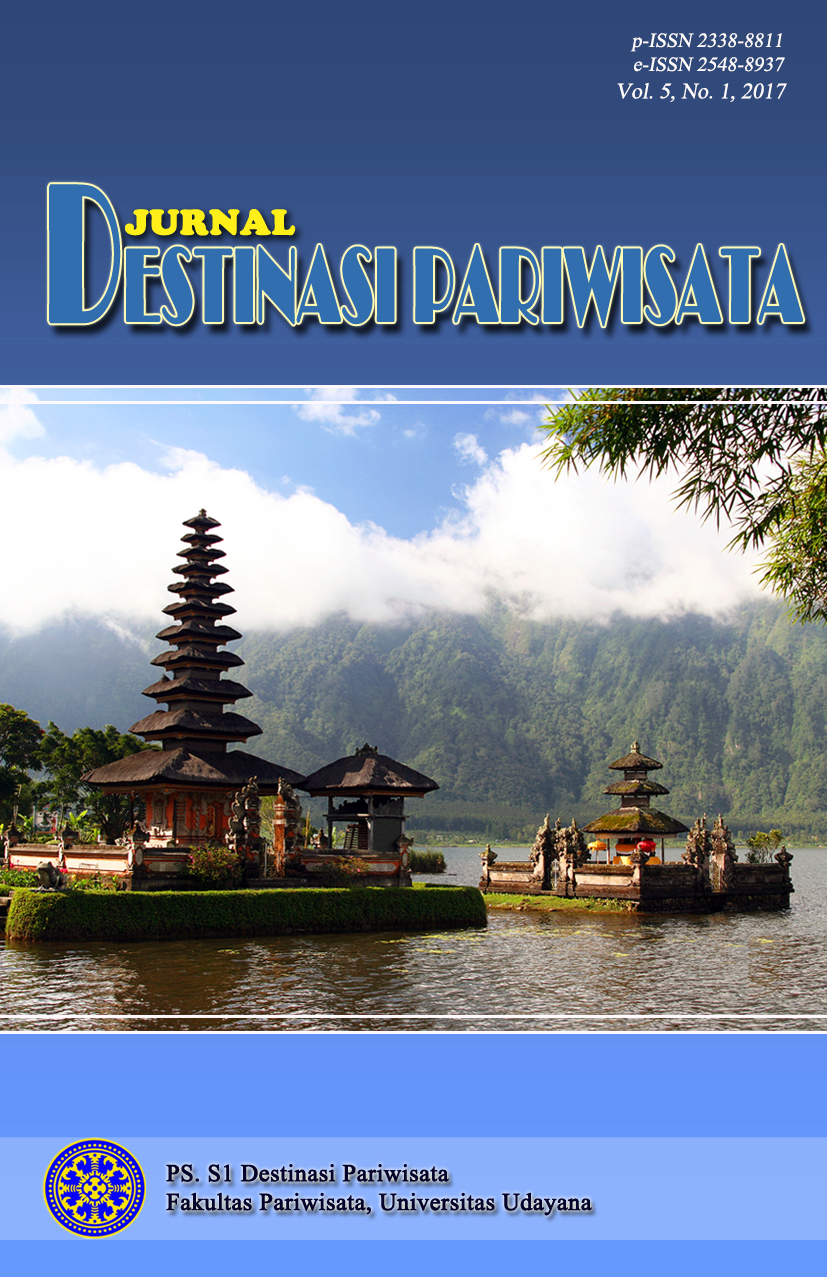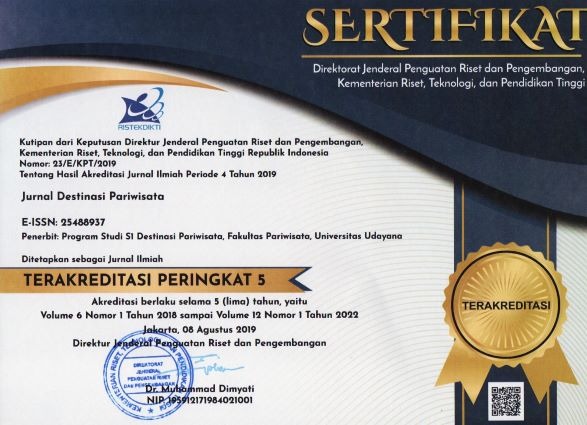Praktik Ekowisata Di Kampung Waerebo Kabupaten Manggarai, Provinsi Nusa Tenggara Timur
Abstract
The purpose of this research was to determine ecotourism practice in Wae Rebo Village and to determine involvement of stakeholder such as local community, government, and investor. This research was conducted in Wae Rebo village with a survey method. Data was collected through observation and in-depth interviews to the informan. Speaker retrieval method is random with interviewing stackeholders such as adviser of LPBW (Lembaga Pelestarian Budaya Waerebo) all at once representation of young generation and owner of travel agent, representation of guide community, representation of souvenir seller community, representation of local community, representation of homestay owner, and representation of tourism departement as a section head of tourism destination development. The data were analyzed using the ecotourism concept according to Fennel (Arida, 2009) and World Conservation Union (WCU in Arida, 2009). These results indicate that ecotourism practices in Wae Rebo Village have happened agree with ecotourism concept and ecotourism principle. Local community have a big role in the management of that gets a lot of help from various travel agent in promoting Wae Rebo.
Keywords: ecotourism, organizer, local community
Downloads









